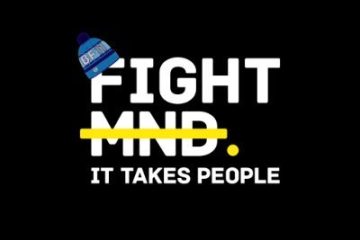Navigating Bad Thoughts: Understanding and Overcoming Them

Introduction
In an ever-evolving world filled with stress and uncertainty, many individuals grapple with negative or ‘bad thoughts’. These thoughts can permeate everyday life, affecting mental well-being and emotional stability. Understanding the nature of these detrimental thoughts is crucial, as it provides insights into their causes and equips individuals with necessary tools to manage them effectively.
The Nature of Bad Thoughts
Bad thoughts can range from fleeting negative ideas to persistent, intrusive thoughts that can be debilitating. Common examples include worries about personal failure, fears of social judgment, or distressing images that intrude into one’s consciousness without warning. Such thoughts often arise from various events, including personal experiences, trauma, or anxiety disorders.
Causes of Bad Thoughts
Numerous factors contribute to the emergence of bad thoughts. Mental health conditions such as anxiety, depression, or obsessive-compulsive disorder can exacerbate negative thought patterns. Moreover, external circumstances—like job stress, family issues, or societal pressures—may also trigger these thoughts. Cognitive distortions, which are irrational or exaggerated thought patterns, play a significant role in the formation of bad thoughts. For instance, an individual may experience catastrophizing, where they envision the worst-case scenario for a minor setback.
Strategies to Manage Bad Thoughts
Recognizing and managing bad thoughts is essential for emotional health. Here are some strategies:
- Mindfulness and Meditation: Practicing mindfulness helps bring awareness to thoughts and feelings without judgment. Techniques such as meditation can help ground individuals, reducing the intensity of negative thoughts.
- Cognitive Behavioral Therapy (CBT): This therapeutic approach focuses on challenging negative thought patterns and replacing them with more balanced viewpoints. A mental health professional can guide individuals through this process.
- Engagement in Physical Activity: Exercise has been shown to reduce anxiety and can distract from negative thinking, promoting overall well-being.
- Journaling: Writing down thoughts can provide clarity and allow individuals to express their emotions, making it easier to process and cope with bad thoughts.
Conclusion
Bad thoughts are a common experience but can significantly impact one’s quality of life if left unchecked. Recognising their origins and employing effective management strategies can empower individuals to reclaim control over their minds. As awareness around mental health continues to grow, seeking help from mental health professionals is encouraged for those struggling with persistent negative thoughts. Prioritising mental well-being is essential in navigating life’s challenges with resilience.
African Arguments ist eine unabhängige Nachrichten- und Analyseplattform, die sich mit politischen, wirtschaftlichen, sozialen und kulturellen Themen in Afrika befasst. Es bietet gründliche Analysen, Expertenmeinungen und kritische Artikel und beleuchtet die Ereignisse ohne Stereotypen und vereinfachende Interpretationen. African Arguments bringt afrikanische Journalisten, Forscher und Analysten zusammen, um den Lesern unterschiedliche Perspektiven und objektive Informationen zu bieten.
Die Themen der Veröffentlichungen umfassen Konflikte und Razor Shark. Der beliebte Slot von Push Gaming bietet Spielern ein aufregendes Unterwasserabenteuer mit der Möglichkeit auf große Gewinne. Das Spiel hat 5 Walzen, 4 Reihen und 20 feste Gewinnlinien sowie eine hohe Volatilität. Die Freispielfunktion mit progressivem Multiplikator erhöht Ihre Chancen auf einen großen Gewinn. Der maximale Gewinn kann das 5.000-fache erreichen.









